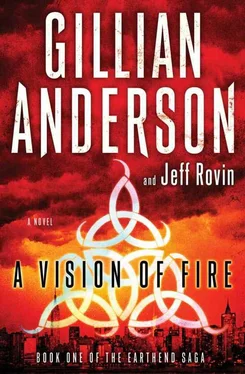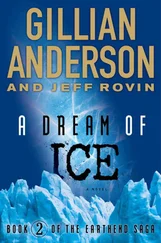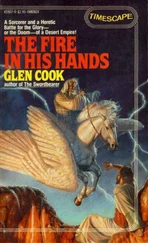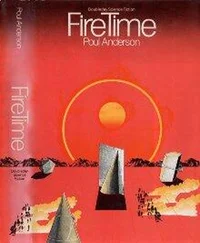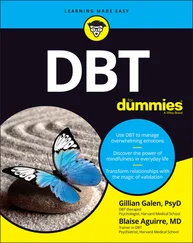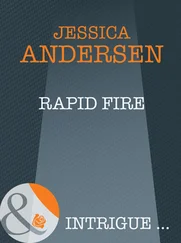Caitlin shook her head.
“The Norse,” he told her.
“Vikings,” she said, starting slightly.
“Yes. They understood that the energy that binds us, one to the other, was manifest in each of us as thought… and thought as language. But it was what you would call a two-way street. If you changed the words you could change the way you thought about the energy.” He rose and carried their cups into the kitchen, and Caitlin heard again the sounds of making tea. She decided to follow, and as she entered the room he smiled and continued. “In 1984, I traveled to Bhopal just after the Union Carbide tragedy. Do you remember that?”
“I do,” she said. “The factory that accidentally released the poisonous gas.”
“The factory was making a pesticide. The gas spread through the slums surrounding the factory and thousands upon thousands of people died. It was most ghastly. I was part of the local clergy asked to help relocate the orphans of this disaster. I kept track of my orphans and visited them when I could over the years.” He placed another cup of tea in Caitlin’s hands. “A fresh cup.” He smiled. “No tears.”
“Thank you.” Caitlin smiled back as she followed him back into the living room. This time he joined her on the couch.
“As to why Maryam brought you here. We have a mutual friend, one of the children in my care who was in the hospital with her. For many decades after the Bhopal tragedy, he spoke in tongues. It was involuntary, in no way linked with any religious ceremony. And she has heard me tell of another child, a young girl, whose arms would sometimes flare in a rash that looked like a chemical burn. The girl called it a motu-cazh .”
His words caused Caitlin to start again. This time he noticed.
“You’ve heard that?” Vahin asked.
“The second part sounded familiar,” she said.
“Well, I disagreed with a psychologist who was part of my group. He argued that it resembled stigmata, a physiological expression of psychological distress. I thought it was much more.”
Caitlin drank her tea and waited patiently. Vahin seemed to be searching for the words to express his thoughts precisely. Finally, he leaned forward and set his tea on the table.
“Let me first tell you something that is clear to me,” he continued. “The left-hand, right-hand activity you mentioned. With your left hand you collected enormous force from the snake, with the right hand you pushed a girl against a wall without touching her. That is the natural flow of things.”
“To become superhuman?”
“No,” he said patiently. “To be a conduit for the energy of the universe. The left hand receives energy, the right hand emits it. This is very old knowledge from Tantric Buddhism. It is similar to chi energy among the Shaolin monks in China.”
He cupped his hands around an invisible sphere and pushed it toward Caitlin. A subtle sensation of warmth washed over her throat.
“I—I felt that,” she marveled.
He continued. “Buddhism, Hinduism, the Vedas, Chinese Taoism, Tai Chi, the paganism that fathered the Viking faiths—the seeds of our minds were not planted in straight rows with walls between them. Every culture has discovered this same phenomenon of energy, both inside of us and surrounding us, all the while connecting us.”
“You mentioned Tai Chi,” Caitlin said, remembering the men and women from the park.
“Tai Chi is an example of great strength used to empower, not to destroy.” He moved his hands in a way that reminded Caitlin of Maanik’s gestures. “Movement stirs the energy inside our bodies and it also opens us to energy from the outside. When those two energies merge we are enlightened, uplifted.”
“Are you talking about life energy or—the soul?” she asked, not entirely comfortable using the latter term.
“Both.”
“Something that survives death.”
He nodded once and pointed to the tea on the table. “When the leaves are gone, the scent remains in the air… and in the mind. It is rekindled, the memory is refreshed, when new tea is brewed. So it is with the soul. With death, the soul hovers until it finds a new body.”
“Hovers how? Where?” Caitlin challenged. “Limbo? Heaven?”
“I prefer to call it the transpersonal plane,” he replied. “As to where?” He paused and gestured simply “out there.”
Caitlin sighed. “I have problems with that idea.”
“Much of the world, throughout history, has embraced some form of that concept.”
“I mean no disrespect, but there are still flat-earthers too,” she said.
He smiled benignly. “Tell me why you reject it.”
She collected her thoughts. “I don’t believe in a cosmic scorekeeper. That seems to be the general conception of God, with heaven as a reward for subjective behavior that changes from culture to culture. I also don’t believe that a soul is a kind of immaterial flash drive where things get stored and then dumped into—”
She stopped herself.
“Yes?” Vahin smiled. “A waiting body? A body weakened by injury or trauma, a body hungry for strong, healing energy?”
Caitlin shook her head. “No. I don’t accept it. That isn’t what’s happening.”
“Self-immolation. A father almost assassinated. A stepmother’s near-drowning. The loss of parents in a horrible mass poisoning.”
“That’s trauma and natural human empathy,” Caitlin said. “I see it all the time. Obviously, I’m feeling it, yet I haven’t suffered a trauma.”
“Haven’t you? Haven’t you shared the traumas of these children?”
“As I said, empathy. That’s not the same as experiencing it firsthand.”
“In fact, your experience could in some ways be worse,” he suggested. “You are collecting these experiences and internalizing them. They may be massing exponentially.”
Okay , she thought. He could be right about that. Caitlin had always kept a strong emotional connection out of the doctor-patient equation. These kids had broken through that.
“But you are missing the point,” Vahin went on. “You are trying to explain away before I can explain.”
“I’m sorry,” she said quickly, “I truly am. I’m being—well, I’m doing what I always do. Forgive me. Please enlighten me.”
Vahin took a moment to consider his approach. “I believe that the common link between these children you have met is trauma, but not just their own trauma.”
“What are you saying?” Caitlin asked. “That there is something else that links them?”
He nodded.
“Your transpersonal plane? The place that’s all around us?” she guessed, still unconvinced.
“You doubt,” Vahin said. “But accept, for a moment, the truth of what I say. Think of the bond those three children’s souls would instantly share. Then multiply that by the countless souls you have not personally met. What else could cause them to experience that level of anguish?”
The suffering implicit in the nightmarish math of that prospect gave her a chill. “All right,” Caitlin said. “Let’s say for the sake of argument that there are traumatized souls somewhere else—let’s call it your transpersonal plane. The assaults I’ve witnessed would suggest that these ‘countless’ souls are opportunistically seeking souls inside the bodies of traumatized youths.”
“Correct.”
“So assuming all of that to be true, why are these loud, aggressive souls getting stronger now?”
“That I cannot say.”
Caitlin sat back hopelessly.
“But as you seek understanding,” Vahin went on, “keep this in mind. These ‘aggressive souls,’ as you call them, may be from one event, souls that are already powerfully linked.”
Читать дальше
